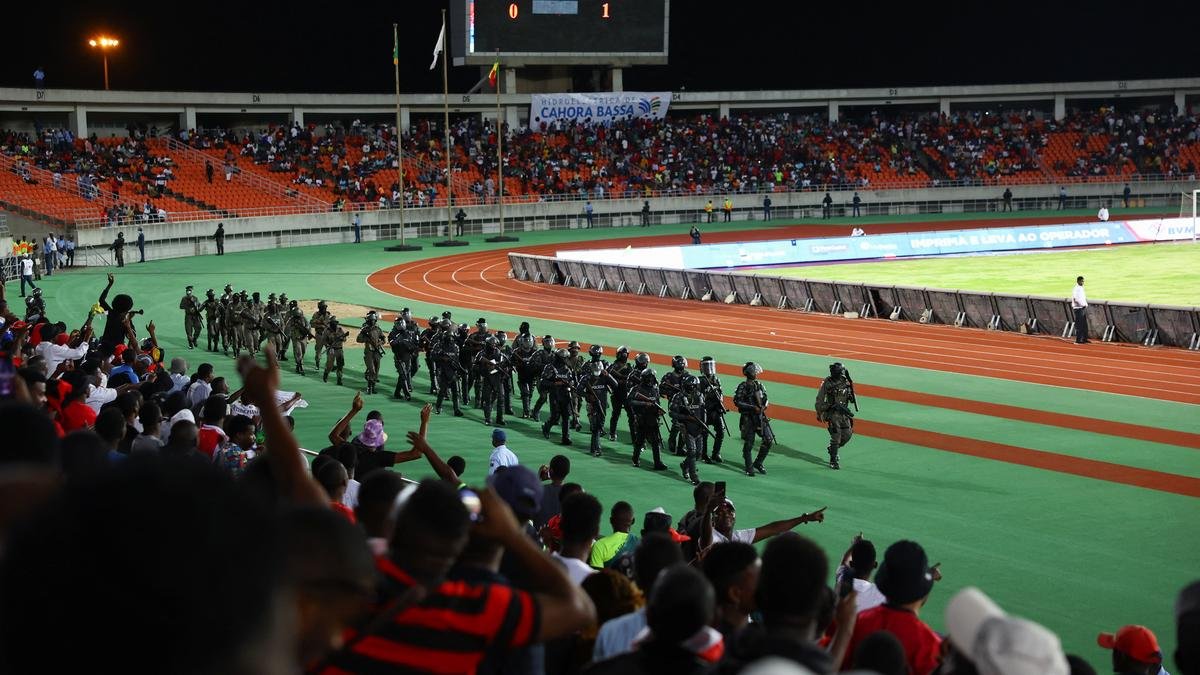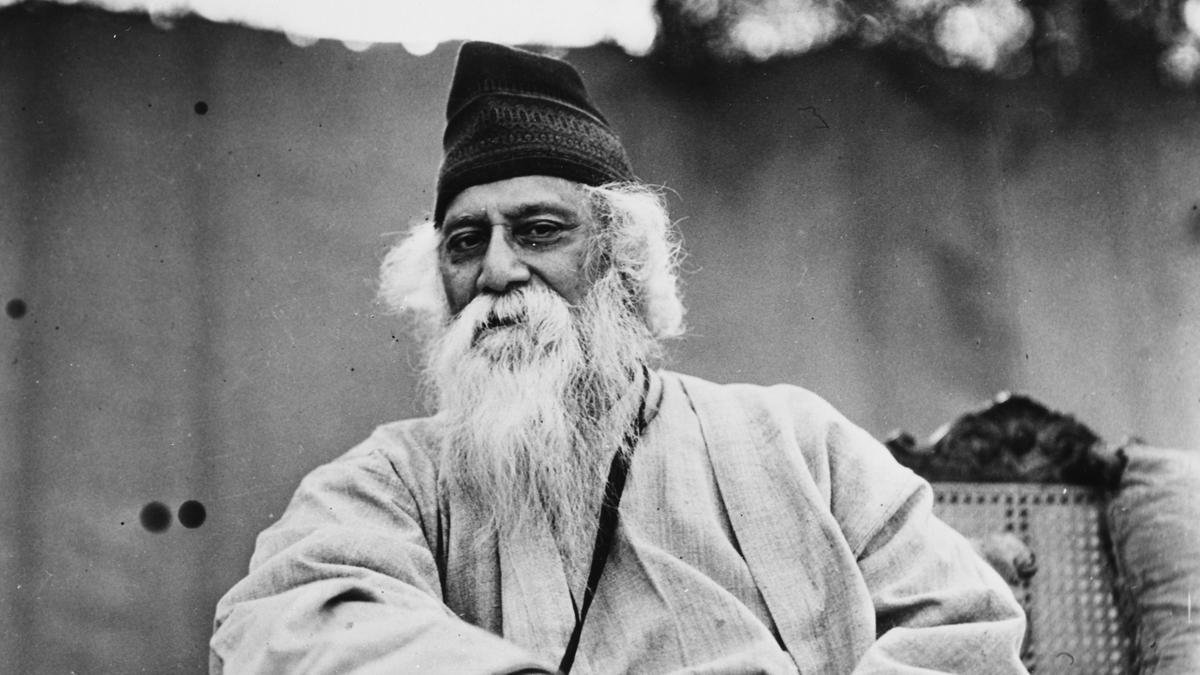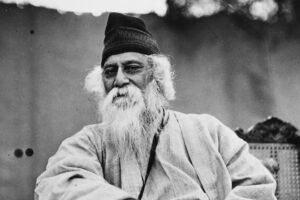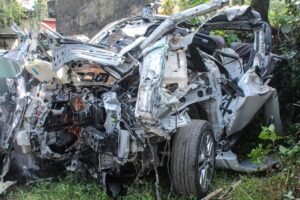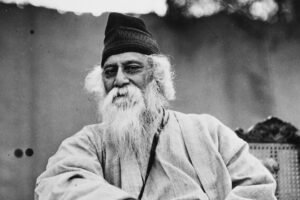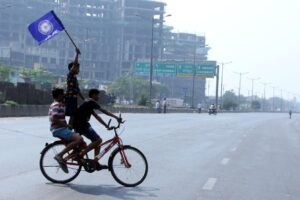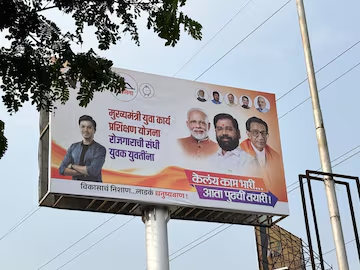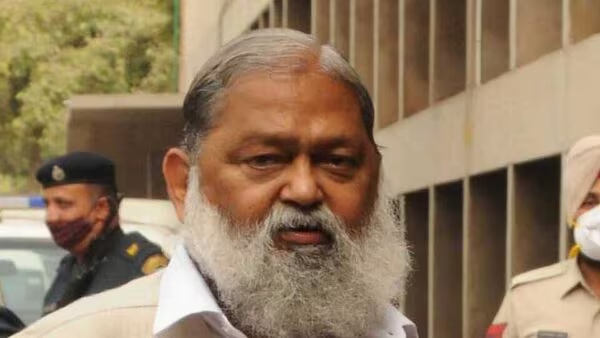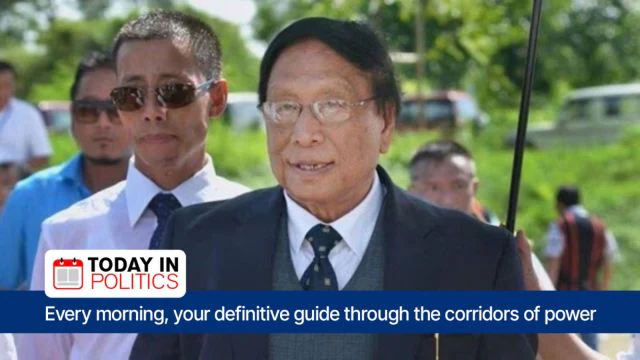Decode Politics: Why Hemant Soren ‘proposer’ joining BJP has dented JMM in Santhal Pargana
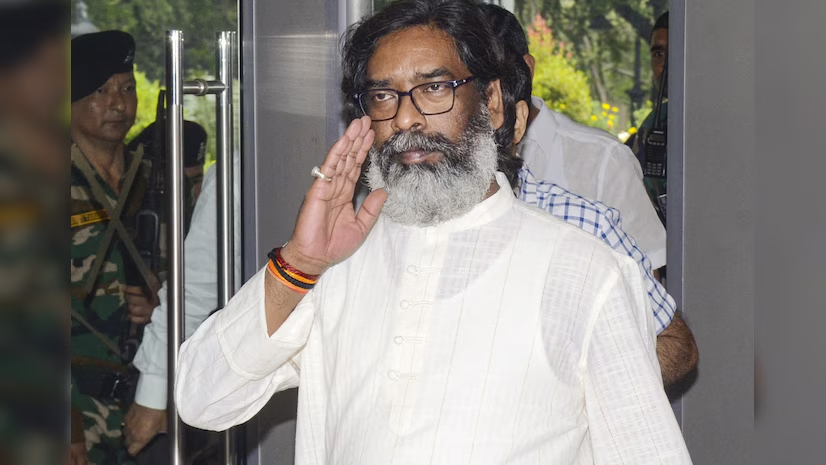
Campaigning for the BJP in the 18 seats of Santhal Pargana, Mandal Murmu, a direct descendant of Sidho and Kanho who orchestrated the “Santhal Hul” rebellion against the British, is poised to contest in Barhait against Chief Minister Soren.
Days before the Jharkhand Assembly elections, a blow hit the ruling Jharkhand Mukti Morcha (JMM) as Mandal Murmu, the proposer for party leader and Chief Minister Hemant Soren’s nomination from the Barhait constituency, defected to the Opposition BJP. This move took place on Sunday in the presence of the BJP’s Jharkhand election strategists, Assam’s CM Himanta Biswa Sarma, and Union Minister Shivraj Singh Chouhan.
Can you explain the controversy surrounding the ‘proposer’s abduction’?
Mandal Murmu’s car was pursued and intercepted by Giridih police on October 27, leading to a short period of detainment. According to reports, he was in the company of several BJYM officials, members of the BJP’s youth faction, who were eventually permitted to depart. Subsequently, JMM claimed that the incident constituted an “abduction” of Murmu.
The issue escalated, prompting the state’s top electoral officer (CEO) to step in. Following this, Chief Election Commissioner (CEC) Rajiv Kumar reprimanded the Chief Secretary and the DGP of the state for the incident, probing into why the police failed to record the detention of Murmu and his vehicle.
Accusing the BJP of cozying up to CM Soren’s proposer, the JMM criticized the party’s actions. Murmu, speaking to The Indian Express, mentioned the numerous political leaders who visit his village to honor his ancestors. He expressed familiarity with many of these leaders and clarified that his intention to meet them was personal.
Can you provide information about Mandal Murmu?
[New Version]: A social activist by the name of Mandal Murmu, aged 28, hails from Bhognadih village situated within Hemant Soren’s Barhait constituency in Sahibganj district. Being a tribal resident of Sahibganj town, Murmu holds a polytechnic degree and is rumored to harbor political ambitions.
Descended from tribal legends Sidho Murmu and Kanho Murmu, Murmu belongs to the line of six siblings who bravely fought the British in the 1855 “Santhal Hul (rebellion).” Among the four brothers, Sidho, Kanho, Chand, and Bhairav, and their two sisters, Phoolo and Jhano, they made the ultimate sacrifice for their cause, preceding the 1857 Revolt by two years.
Santhal Hul, can you explain what it is?
In the heart of the Santhal Hul rebellion, Bhognadih village stood as a significant hub for the organized resistance by the Santhal community against colonial rule and various oppressions inflicted by the British and their allies. Spearheaded by Sidho and Kanho, this movement garnered support from 32 different communities, uniting in defiance. The uprising unfolded in the vicinity of the Rajmahal Hills in the Sahibganj region before being quelled by the British military in the initial months of 1856.
Jharkhand observes June 30 as “Hul Diwas” annually, signifying the commencement of the rebellion, and April 11 to celebrate Sidho’s birthday.
Murmu’s complaints – what do they entail?
Murmu continues to assert that Bhognadih village, the birthplace of Sidho and his siblings, is devoid of fundamental facilities like a drinking water supply. He highlighted the annual visits of politicians to the village, remarking that despite these visits, there has been no tangible improvement for the villagers.
[My Rewrite]: Drawing a parallel, Murmu has attempted to juxtapose Bhognadih with the tribal symbol Birsa Munda’s village Ulihatu in Khunti district, noting that the latter has undergone “development.” He expressed, “Bhognadih has not received the acknowledgment it is due. The Santhal uprising occurred prior to Birsa Munda’s birth in 1875.
Ensuring a consistent water supply to the village of Bhognadih should be a top priority for the government and local administration. Despite our repeated protests and numerous applications on this matter, our efforts have unfortunately not yielded any results.
In Ulihatu village, he highlighted the presence of paved roads, educational institutions, and widespread access to clean water in households. The village has received visits from Prime Minister Narendra Modi and President Droupadi Murmu. Furthermore, November 15, which marks Birsa Munda’s birth anniversary, is now celebrated as “Janjatiya Gaurav Diwas” or Tribal Pride Day.
What is the reason behind BJP’s decision to include Murmu?
Prior to his official induction into the BJP, Murmu was reportedly propositioned by the party to run against CM Soren. An insider revealed that while Murmu was hesitant at the time and the idea was eventually abandoned, he harbors political ambitions. It seems that although he may have been unprepared for the current election, he is gearing up for future political endeavors.
BJP leaders have expressed their intention to enlist Murmu’s support for campaigning on behalf of the party’s candidates in the upcoming polls scheduled for November 20 in the Santhal Pargana region. During the 2019 Assembly elections, the JMM secured victory in nine out of the region’s 18 seats, encompassing all seven Scheduled Tribes (ST)-reserved seats, while its partner Congress claimed four seats. In contrast, the BJP only managed to secure victory in four seats during that election.
Barhait’s stronghold under CM Soren saw Murmu campaigning for the BJP candidate Gamliyel Hembrom.
The JMM has disregarded the BJP’s decision to include Murmu as “insignificant.” A JMM leader remarked, “While Murmu may have been enticed by the BJP to align with them, his credibility has been compromised, and the public will not be deceived.

